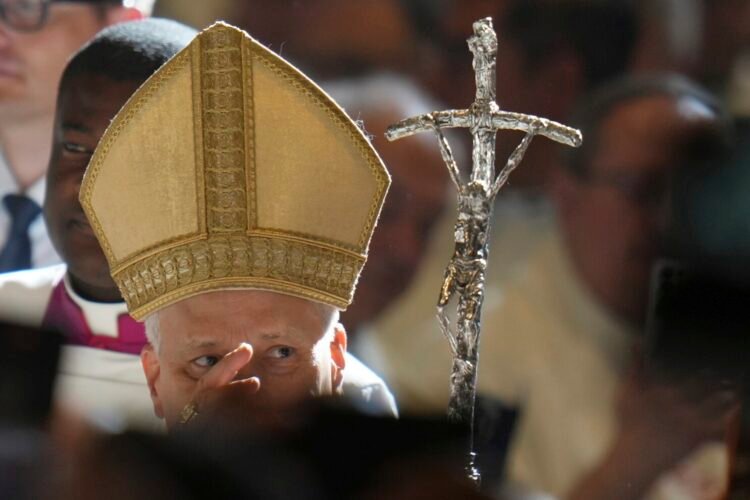“compiled:Sophia Bennett”
The Vatican has pushed back against the interpretation of newly leaked internal documents that appear to contradict Pope Francis’ justification for restricting the traditional Latin Mass, saying the materials represent only a fragment of the broader evidence that guided the decision.
The documents, posted online this week by a Vatican reporter, suggest that most bishops who responded to a 2020 Vatican survey had a generally positive view of Pope Benedict XVI’s 2007 decision to expand access to the Latin Mass. The materials appear to show that many bishops warned that rolling back those permissions could alienate traditionalist Catholics and fuel further division.
But in a rare statement, Vatican spokesman Matteo Bruni said the leak gives a “very partial and incomplete reconstruction” of the actual process that led to Pope Francis’ 2021 decree Traditionis Custodes, which reimposed restrictions on the use of the ancient rite.
“Successive confidential reports and consultations were taken into consideration,” Bruni told reporters on Thursday, without directly confirming the authenticity of the documents.
Francis’ Controversial Crackdown
The Latin Mass—celebrated for centuries before the reforms of the Second Vatican Council in the 1960s—has been a flashpoint in internal Catholic debate. Pope Francis’ 2021 restrictions reversed the liberalizing reforms of his predecessor, Pope Benedict XVI, who had aimed to foster unity by allowing wider use of the traditional liturgy.
In announcing the reversal, Francis said the original intention had been “exploited” by groups seeking to sow division. He cited the results of a global consultation of bishops and the guidance of the Vatican’s doctrine office as the rationale for his decision.
“The responses reveal a situation that preoccupies and saddens me,” Francis wrote at the time. “I am persuaded of the need to intervene.”
What the Leaked Documents Show
The leaked files—none of which bear official letterhead or identifiable signatures—include an internal five-page summary and a seven-page compilation of bishops’ feedback. The documents suggest many bishops saw value in maintaining access to the traditional liturgy and believed that curtailing it could be harmful.
Some bishops reportedly expressed concern that limiting the Latin Mass would push faithful Catholics toward schismatic groups. Others pointed to a rise in religious vocations within traditionalist communities and noted the appeal of the ancient liturgy among young Catholics drawn to its “sacredness, seriousness, and solemnity.”
While the documents do include negative views—describing the old Mass as “inappropriate,” “divisive,” and even “dangerous”—the overall tone appears more favorable than previously understood.
A Divided Church Watches Pope Leo XIV
The leak has reignited calls from traditionalist groups for Pope Leo XIV, who recently succeeded Francis, to revisit the restrictions. They argue the leaked material proves that Traditionis Custodes did not reflect the broader consensus of the world’s bishops.
“The new revelations confirm that Pope Francis restricted the Traditional Mass at the request of only a minority of bishops,” said Joseph Shaw, chair of the Latin Mass Society of England and Wales. “Pope Leo should address the issue urgently.”
Some traditionalist leaders have proposed that Leo could quietly ease the restrictions by encouraging Vatican offices to grant more exemptions for diocesan parishes to celebrate the Latin Mass—a strategy that may already be underway.
This week, the Diocese of San Angelo, Texas, confirmed it had received a two-year extension allowing continued celebration of the traditional liturgy. “Thank you to Pope Leo and the Vatican liturgy office,” wrote Rev. Ryan Rojo, the diocese’s seminarian director, in a post on X.
A Pontificate Balancing Unity and Dissent
As Pope Leo XIV settles into his new role, the future of the Latin Mass remains a key early test. While he has emphasized unity and reconciliation within the global church, the resurgence of the Latin Mass debate signals that his predecessor’s liturgical legacy—and the wounds it left behind—are far from resolved.
For now, the Vatican maintains that Pope Francis’ decision was rooted in broader consultations than what the leaked documents suggest. Whether Pope Leo will act to revise that legacy remains an open question.

 English
English



























































